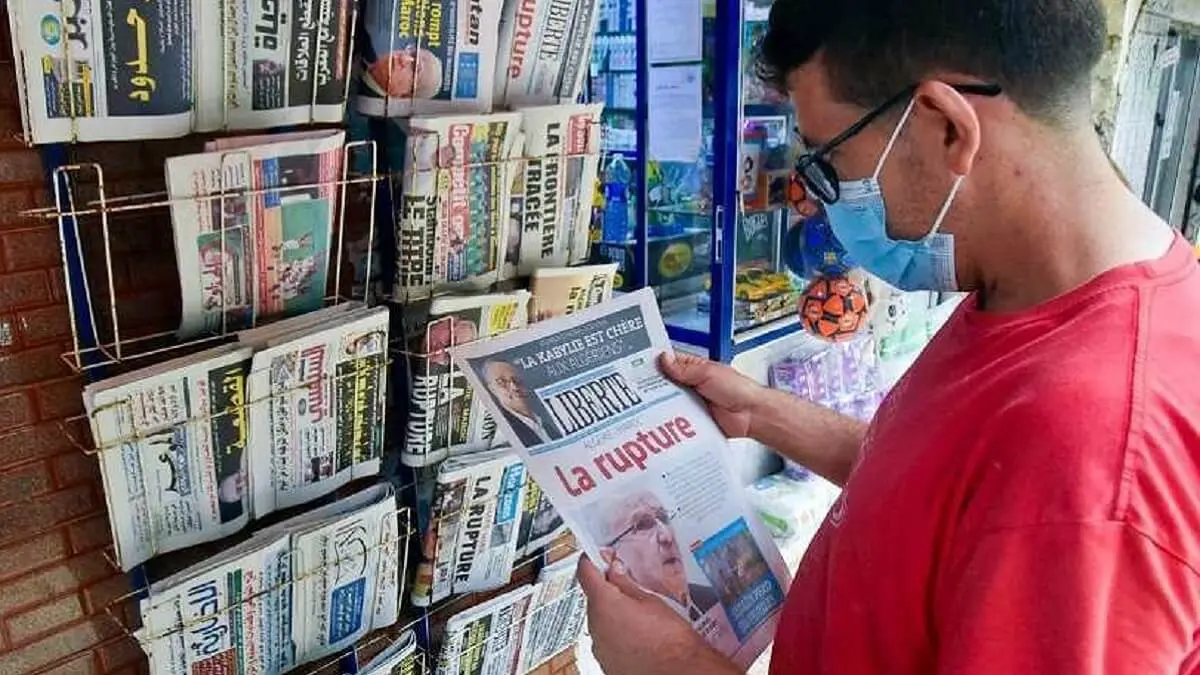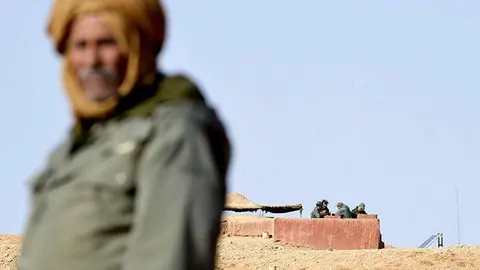Algerian media are losing credibility by disseminating false news about Morocco

The Algerian authorities use the media and social networks to attack Moroccan institutions, such as the Royal Armed Forces (FAR), by spreading false news and promoting anti-Moroccan discourse.
Public opinion is aware of this, which is why the Algerian media "have been exposed" and "no longer have any impact" on society, as Al-Arab points out. FAR has also had to deny several false Algerian news stories concerning the alleged desertion of Moroccan officers.
"It seems that the parties behind the publication of this false and unfounded news aim to damage the morale of Moroccan soldiers," a statement from the Moroccan military authorities said. "The Royal Armed Forces will continue to resist all despicable attempts to question the cohesion of army personnel and their loyalty to their Supreme Commander, His Majesty King Mohammed VI," the official note adds.
However, this is not the first time that false information or news has been published with the aim of damaging Moroccan institutions. Previously, the Algerian media have promoted disinformation regarding the war in Western Sahara and the number of casualties among Moroccan soldiers.
Since the military operation carried out by the Moroccan armed forces to resume movement at the Guerguerat crossing - the border point between Morocco and Mauritania - after it was occupied by members of the Polisario Front in 2020, the Algerian media have approached the conflict on the basis of disinformation, becoming the mouthpiece of the Polisario.
Most of the media supported the actions of the Sahrawi separatist organisation, attacking Morocco through fake news and disinformation.

Analysts quoted by Al-Arab believe that these actions reflect "Algeria's political and media impotence", as well as Algiers' rejection of "the state of consensus that the Moroccan Sahara issue enjoys among all components of Moroccan society and its willingness to sacrifice itself for the sake of its territorial integrity".
This disinformation is particularly encouraged by the Algerian president, Abdelmadjid Tebboune, who calls on his country's media to support the state's efforts to respond to "the war facing Algeria".
Hassan Saud, a researcher at the Royal Institute for Strategic Studies, explains to Hespress that "Algeria's adoption of a strategy of promoting fake news aimed at Moroccan institutions is a response to the diplomatic successes achieved by Morocco in recent years". In contrast, Saud highlights "the Algerian government's failure to mobilise support for its separatist proposal and its failure on other issues that have deepened its isolation, at a time when Rabat continues to mobilise international support and backing for its sovereignty over its southern provinces".

Saud considers that Algiers "knows with certainty" that the issue of "the Moroccan Sahara has the support of the whole of society". "The media apparatus and the loyalist press try to misinform, but they have not succeeded and will never succeed because the Moroccan people are well aware of this objective", he adds.
In the past, the pro-regime Al-Shorouk newspaper in Algeria published an archive photograph documenting peaceful demonstrations in Rabat in 2017 claiming that these were protests in the Kingdom's cities. The Algerian newspaper headlined the story with "Mass demonstrations in Morocco and clashes between police and protesters", which provoked harsh criticism on social media, including from Algerians, who considered that the newspaper was working under direct instructions from the regime in Algiers.

Saud considers that Algiers "knows with certainty" that the issue of "the Moroccan Sahara has the support of the whole of society". "The media apparatus and the loyalist press try to misinform, but they have not succeeded and will never succeed because the Moroccan people are well aware of this objective", he adds.
In the past, the pro-regime Al-Shorouk newspaper in Algeria published an archive photograph documenting peaceful demonstrations in Rabat in 2017 claiming that these were protests in the Kingdom's cities. The Algerian newspaper headlined the story with "Mass demonstrations in Morocco and clashes between police and protesters", which provoked harsh criticism on social media, including from Algerians, who considered that the newspaper was working under direct instructions from the regime in Algiers.









